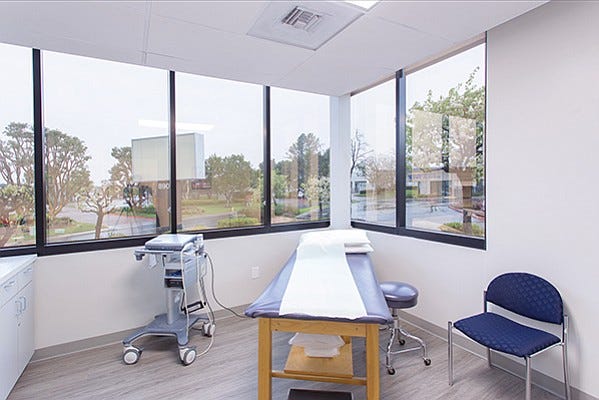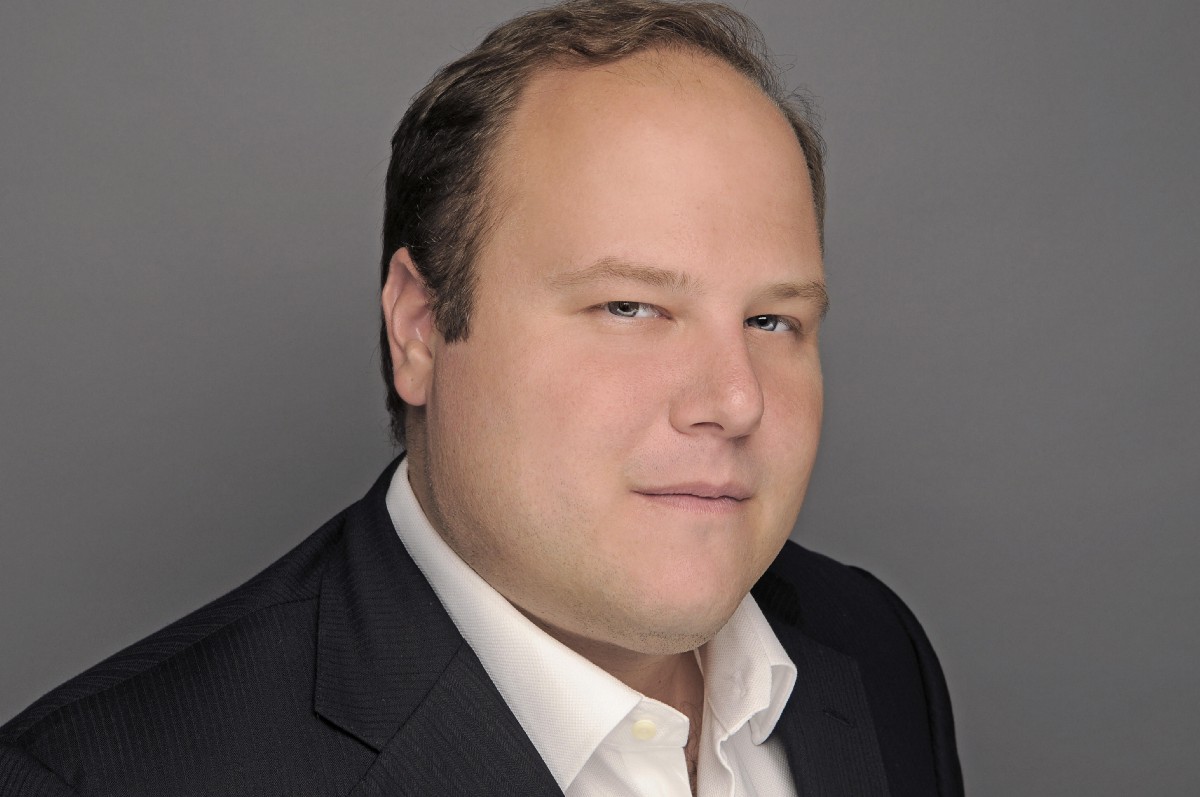Something must be done with the cost of providing care. Hospital Systems are not efficient financially, which is driving up the cost of care for everyone
As a part of my interview series with leaders in healthcare, I had the pleasure to interview George Scopetta, the founder and CEO of WeShareMD, the largest flex office company focused on physicians and medical professionals. George is also the Principal and Managing Partner of Medicus Property Group, a family office focused on investing in medical office space throughout the nation.
Thank you so much for doing this with us! Can you tell us a story about what brought you to this specific career path?
I was previously in banking and met my business partner, Dr. James Chao, at a baseball game in San Diego. We started to talk about the state of the healthcare system as Obamacare had just passed Congress, and I think we both saw that there were going to be significant changes ahead, and that healthcare would be a significant growth market in the future. We both wanted to see how we could help shape its direction.
Can you share the most interesting story that happened to you since you began leading your company?
I think that how James and I met has to be the most interesting story. It’s not typical that when you are on vacation and you meet someone that there was an instant connection with and that we were both on the same page.
What do you think makes your company stand out? Can you share a story?
I think WeShareMD stands out clearly because of our level of service and attention to detail. We really go out of our way to make both the doctor and patient experience perfect.

What advice would you give to other healthcare leaders to help their team to thrive?
I think service has really gone down and that they need to concentrate on the customers. Obamacare provided access to healthcare financially for a large number of people but it provided no money to help improve the infrastructure. This means that the number of patients has increased but the number of care providers has remained the same. This has shocked the system, and the focus has changed to getting people through the system rather than making sure everyone is taken care of properly.
Ok, thank you for that. Let’s jump to the main focus of our interview. According to this study cited by Newsweek, the US healthcare system is ranked as the worst among high income nations. This seems shocking. Can you share with us 3–5 reasons why you think the US is ranked so poorly?
1. Access
2. Culture
3. Insurance
Until we give doctors a fair chance at entrepreneurship, they systematic design will continue to work for big hospitals and against the average person, and for as great as this country is, that is really sad.

You are a “healthcare insider”. If you had the power to make a change, can you share 5 changes that need to be made to improve the overall US healthcare system? Please share a story or example for each.
1. I think there should, and will eventually be, a two-tiered system. One similar to Obamacare, which handles catastrophic coverage, and another private pay system for lifestyle care.
2. There also has to be something done with the cost of providing care. Hospital Systems are not efficient financially which is driving up the cost of care. This is where WeShareMD comes in. It provides a way for doctors to share office space and lower their overhead cost in running their practice and allows them to focus on practicing medicine and providing a great patient experience. We also hope to drive down the cost to patients through this model.
3. Build transparency into medicine. The fact that an aspirin costs $100 in an emergency room, and the average person does not know that, speaks volumes. There is simply not a transparent costing system and that needs to change.
4. Give doctors the ability to be entrepreneurs. I think decentralizing medicine will help it become concierge and patient focused. This is another goal of WeShareMD.
5. Finally, it would be great if we could collectively improve our overall quality of care. We need to treat people like people. Scientific improvements can only take us so far in medicine.
Ok, its very nice to suggest changes, but what concrete steps would have to be done to actually manifest these changes? What can a) individuals, b) corporations, c) communities and d) leaders do to help?
I think companies like WeShareMD, which allows doctors to concentrate on providing care that lowers the overhead cost of providing that care, is just what the system needs.
As a mental health professional myself, I’m particularly interested in the interplay between the general healthcare system and the mental health system. Right now we have two parallel tracks: mental/behavioral health and general health. What are your thoughts about this status quo? What would you suggest to improve this?
I think there definitely needs to be a focus on improving access to mental care. I think that we have finally come to the realization that mental care is one of the most critical aspects of treating a patient. Now we have to fund programs to help treat the mental health of the patient, which was not a focus in the past. I think that there should not be a separation between mental health and general health and that both should be treated together because in order to achieve better overall general health, there is always a mental health aspect involved.
How would you define an “excellent healthcare provider”?
Someone who focuses on care and their patient above everything else.

Can you please give us your favorite “Life Lesson Quote”? Can you share how that was relevant to you in your life?
One of the best lessons learned is to never take NO for an answer. Believe in your vision and keep pushing forward. When you find someone that believes in you, and your idea, and gives you a break, the job and the journey is not finished. The hard work has just begun. You only get one chance to shine and prove yourself and you better work your heart out to make what you are doing successful. It’s your reputation on the line and that is everything. No amount of money in the world can fix that if you mess it up.
Are you working on any exciting new projects now? How do you think that will help people?
I am constantly working at WeShareMD to try to improve our service offerings to constantly improve the patient experience and make it easier for doctors to treat their patients.
How can our readers follow you on social media?
Learn more about our company at www.wesharemd.com where you can also read our press. Follow us on LinkedIn, Facebook and Instagram at wesharemd.
Thank you so much for these insights! This was so inspiring!
About the Author:
Originally from Israel, Limor Weinstein has been anorexic and bulimic, a “nanny spy” to the rich and famous and a Commander in the Israeli Army. Her personal recovery from an eating disorder led her to commit herself to a life of helping others, and along the way she picked up two Master’s Degrees in Psychology from Columbia University and City College as well as a Post-Graduate Certificate in Eating Disorder Treatment from the Institute for Contemporary Psychotherapy.
Upon settling in New York, Limor quickly became known as the “go to” person for families struggling with mental health issues, in part because her openness about her own mental health challenges paved the way for open exchanges. She understood the difficulties many have in finding the right treatment, as well as the stigma that remains so prevalent towards those who are struggling with mental health issues. She realized that most families are quietly struggling with a problem they’re not comfortable talking about, and that discomfort makes it much less likely that they will get the help they need for their loved ones. She discovered that being open and honest about her own mental health challenges took the fear out of the conversations. Her mission became to research and guide those families to the highest-quality treatment available. Helping others became part of her DNA, as has a commitment to supporting and assisting organizations that perform research and treatment in the mental health arena.
After years of helping families by helping connect them to the right treatment and wellness services, Limor realized that the only way to ensure that they are receiving appropriate, coordinated and evidence-based care would be to stay in control of the entire treatment process. That realization led her to create Bespoke Wellness Partners, which employs over 100 of the best clinicians and wellness providers in New York and provides confidential treatment and wellness services throughout the city. Bespoke has built its reputation on strong relationships, personalized, confidential service and a commitment to ensuring that all clients find the right treatment for their particular issues.
In addition to her role at Bespoke Wellness Partners, Limor is the Co-Chair of the Academy of Eating Disorders. She lives with her husband, three daughters and their dog Rex in Manhattan.
To sign up for our newsletter, or learn more about custom mental health, click here.


